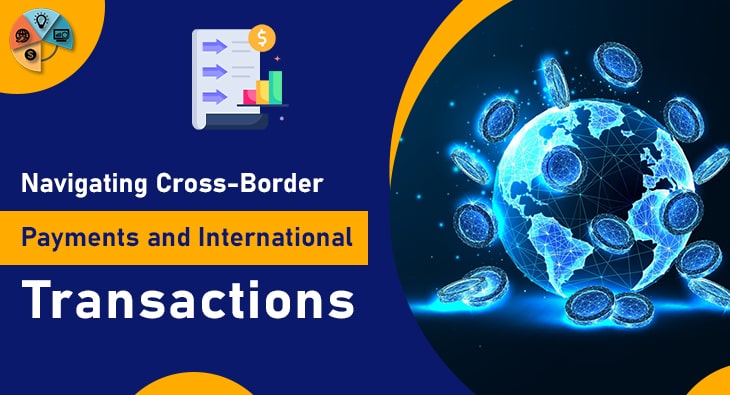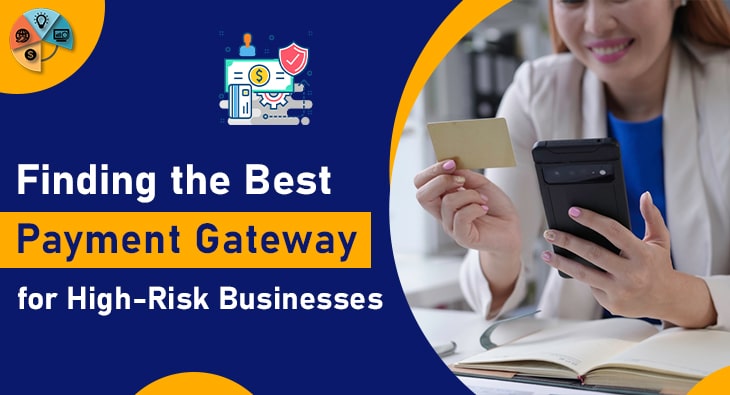Navigating the complexities of cross-border payments and international payment transactions can be a daunting task for businesses and individuals alike. As the global economy continues to expand, the need for efficient and secure methods of transferring money across borders has never been more crucial.
Different regulations, varying currencies, and diverse financial systems can create obstacles that hinder smooth transactions. Understanding the various options available, from traditional banking methods to modern digital payment platforms, is essential for anyone looking to engage in international commerce or personal remittances.
This blog post will explore the key considerations for successfully managing cross-border payments, offering insights into best practices and emerging technologies that can streamline the process and minimize costs.
Whether you’re a small business owner or an individual sending money overseas, gaining a clear understanding of the landscape can significantly enhance your experience and ensure that your transactions are both timely and secure.
Understanding the Basics of Cross-Border Payments
Understanding the basics of cross-border payments is essential for navigating international financial transactions effectively. At its core, a cross-border payment involves transferring money from one country to another. This process can be more complex than domestic payments due to factors such as differing banking infrastructures, regulations, and currencies.
One key aspect to understand is the role of intermediary banks, often required to facilitate the transfer between the sending and receiving banks. These intermediaries can add layers of complexity and cost to the transaction.
Another important element is the SWIFT system, a network that enables banks to communicate securely about financial transactions. While SWIFT is widely used, other systems like SEPA (Single Euro Payments Area) are specific to certain regions and offer different benefits and limitations.
Exchange rates are another critical component. Fluctuations in currency values can significantly impact the final amount received, making it essential to monitor and choose the right time for transactions.
Lastly, understanding the time it takes for funds to be transferred is vital. While some methods offer near-instant transfers, others may take several days. By grasping these basics, you can make more informed decisions and navigate the complexities of cross-border payments more effectively.
Some Related Blogs
- The Impact of Payment Technology on Customer Experience
- Security Best Practices for Payment Processing
- Cryptocurrency as a Payment Option
- The Role of Payment Gateways in E-Commerce Success
Different Methods for International Payment Transactions
Different methods for international payment transactions offer varied benefits and can cater to different needs. Traditional bank transfers are a common choice, leveraging the global SWIFT network to facilitate secure communications between banks. However, these can be slow and expensive, especially if intermediary banks are involved.
For faster alternatives, many turn to digital payment platforms like PayPal, TransferWise (now Wise), and Revolut. These services often provide quicker transactions and lower fees by bypassing traditional banking systems. They also offer the convenience of transferring funds through mobile apps and websites, which can be a significant advantage for both businesses and individuals.
Credit cards are another option for international payments, especially for purchasing goods and services online. They are widely accepted and offer additional security features. However, they can come with high foreign transaction fees and less favorable exchange rates.
Another method is using cryptocurrency, which is gaining traction for its ability to facilitate near-instant cross-border payments without the need for intermediaries. Platforms like Bitcoin and Ethereum allow users to send funds globally, but they come with their own set of challenges, including volatility and regulatory scrutiny.
Finally, for those dealing with specific regions, local payment systems like SEPA for Europe offer efficient solutions tailored to regional needs.
Currency Exchange and Its Impact on Transactions
Currency exchange rates play a pivotal role in cross-border payments and can significantly impact the amount of money ultimately received. The value of a currency fluctuates due to various factors, including economic indicators, geopolitical events, and market speculation.
These fluctuations can lead to varying exchange rates, making it crucial to monitor them closely when planning international transactions. Choosing the right moment for a transaction can result in substantial cost savings or, conversely, unexpected expenses.
Another critical aspect is the type of exchange rate applied—whether it’s a spot rate or a forward rate. Spot rates are current rates at which a currency can be exchanged, while forward rates are agreed upon for future transactions, offering a way to hedge against potential currency depreciation.
Additionally, it’s essential to be aware of any additional charges imposed by banks or payment platforms for currency conversion. These can include a markup on the exchange rate or a flat fee, both of which can add to the overall cost of the transaction. Some service providers offer more competitive rates than others, so shopping around can be beneficial.
Understanding how currency exchange impacts international payments allows for better financial planning and can help minimize costs associated with cross-border transactions.
Managing Transaction Fees and Hidden Costs
Managing transaction fees and hidden costs is crucial for anyone involved in cross-border payments. While some fees are transparent, others can be buried in the fine print. Common fees include transfer fees, intermediary bank charges, and currency conversion costs. These can add up quickly, making it essential to scrutinize the terms and conditions of your chosen payment method.

To mitigate these costs, consider using digital payment platforms known for their lower fees compared to traditional banks. Platforms like Wise and Revolut often offer more competitive exchange rates and lower transaction fees. Additionally, opting for a service that supports direct transfers between the sender and recipient can help avoid intermediary bank fees.
Another strategy is to consolidate transactions when possible. Sending larger sums less frequently can be more cost-effective than multiple smaller transactions, as many providers charge flat fees per transfer. Also, some services offer tiered pricing, where the fee percentage decreases as the transaction amount increases.
Always be mindful of hidden costs, such as unfavorable exchange rate markups and additional service fees. Comparing multiple providers and thoroughly understanding their fee structures can save you significant money in the long run.
Regulatory Compliance and Security Measures
Regulatory compliance and security measures are critical aspects of cross-border payments that cannot be overlooked. Navigating the diverse regulatory landscapes of different countries requires a thorough understanding of local laws and international guidelines.
Financial institutions and payment providers must adhere to regulations such as AML (Anti-Money Laundering) and KYC (Know Your Customer) to prevent illegal activities and ensure the legitimacy of transactions.
Security measures are equally vital to protect sensitive financial information and funds. Advanced encryption technologies and secure communication protocols are essential to safeguarding transactions from cyber threats and fraud. Payment providers often employ multi-factor authentication (MFA) and real-time monitoring systems to enhance security.
Compliance also involves adhering to data protection regulations like GDPR in Europe, which mandate how personal data is collected, stored, and processed. Non-compliance can result in significant fines and damage to reputation.
Therefore, businesses and individuals engaged in international transactions must stay informed about the regulatory requirements and ensure their payment processes are secure and compliant. Partnering with reputable payment providers can offer additional layers of protection and help navigate the complex regulatory environment efficiently.
![]()
Email us anytime!
Email customer service 24/7
![]()
Call us anytime!
Reach customer care 24/7 at +1 (727) 330-3944


